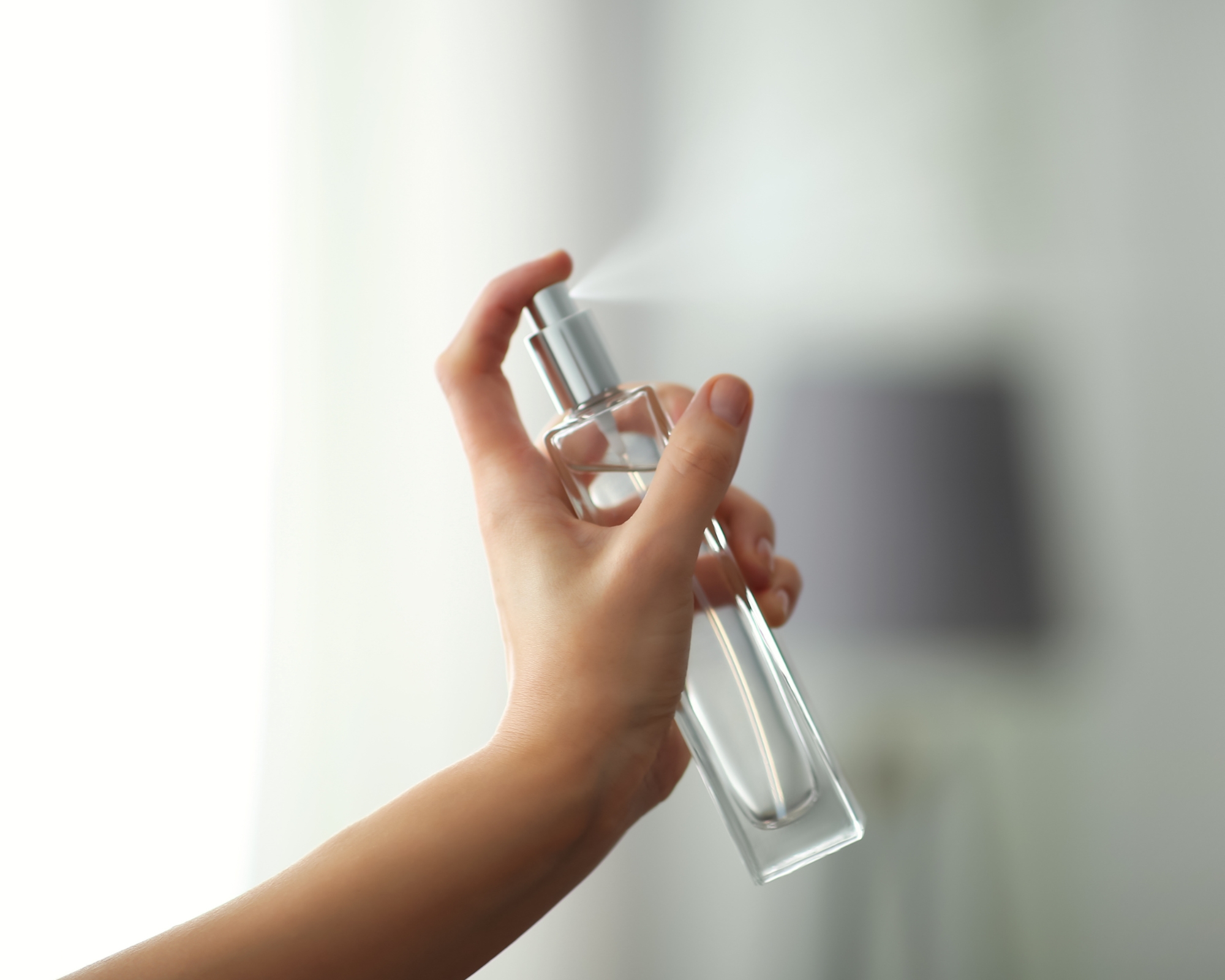Are air fresheners toxic? Handy home fragrance safety tips from medical experts, plus safe products to try instead
Are air fresheners toxic, or can you freshen up your home without worry? Our medical experts explain


Get small space home decor ideas, celeb inspiration, DIY tips and more, straight to your inbox!
You are now subscribed
Your newsletter sign-up was successful
You may be wondering "are air fresheners toxic?" before tossing one in your shopping cart. If you have kids, pets, or are just sensitive to air quality there are a few things you should know.
Air fresheners can pose real dangers not only to humans but also to your fur family, too. We spoke with veterinarians and physicians to find out the risks, what you need to do in case of exposure.
Learn how to find air fresheners that are safer for your whole family in our expert-led guide.
Are air fresheners toxic to kids and adults?
Dr. Kevin Huffman, Doctor of Osteopathic Medicine and CEO & Founder of AmBari Nutrition, explains that certain home fragrances may pose risks to both children and adults.
“Some air fresheners contain volatile organic compounds (VOCs) such as formaldehyde, benzene, and acetaldehyde, which have been linked to respiratory symptoms such as coughs, wheezing, and asthma attacks, especially in children with sensitive airways,” he says. “Some fragrances use phthalates, endocrine disruptors that may interfere with hormonal function.”
Kevin notes that aerosol air fresheners and plug-in diffusers, which are constantly dosed, pose the greatest risk. Additionally, gel beads and diffuser sticks can cause harm if they’re accidentally ingested by children.
“Symptoms of air freshener ingestion include nausea, vomiting, dizziness, coughing, and difficulty breathing. Severe cases can include aspiration pneumonia,” he says. If your child has ingested air freshener material, then it’s important to seek medical attention right away.
Get small space home decor ideas, celeb inspiration, DIY tips and more, straight to your inbox!
“Some research has found a connection between long-term exposure to VOCs and the risk of respiratory problems and allergies, and even certain cancers,” says Kevin.
However, the exact long-term health effects of using air fresheners aren’t yet known.
Can you safely use air fresheners around kids and adults?

You can maximize your family’s safety by carefully choosing your air fresheners. “Consider air fresheners that are labeled ‘fragrance-free’ or ‘natural essential oils’ – these tend to be less irritating and are less likely to have adverse effects,” says Kevin. “Essential oils can also be irritating at high concentrations, so be careful about their use, especially around children and pets.”
He recommends that you carefully read the air freshener labels and avoid using products that contain harsh chemicals or artificial fragrances. If you want to add scent to your environment, use a natural option like diffusing diluted essential oils in a reed diffuser or open your windows and let in fresh air.
“The healthiest way to have a fresh-smelling home is to ensure that it’s well-ventilated and clean,” he says.
If the idea of deep-cleaning your home sends panic through you, take it step-by-step. You'll learn how to clean your home without overwhelm in our handy guide with great tips from industry pros to break down the task.
Are air fresheners toxic to pets?

Air fresheners are even more dangerous for your pets. Dr. Jamie Clanin, a veterinary advisor at PetLab Co., explains that air fresheners can be highly toxic to pets.
“The most toxic ingredients are the same ones that help the scent move through the air,” she says. “These are known as volatile organic compounds, or VOCs, and can cause anything from irritation of the eyes and airway to organ damage or even cancer.”
Dr. Paola Cuevas, veterinary consultant at Catster, notes that though an air freshener may be marketed as natural, it can still pose a risk to your pet’s health.
“Many so-called “natural fresheners” contain essential oils, which are highly toxic to pets, since they do not have the necessary enzymes to process them,” she explains. “Cats are even more sensitive than dogs, but both are vulnerable.”
Paola explains that pets can be harmed by ingesting air freshener contents, absorbing the oils through their skin, and even by inhaling the VOCs simply by being in the house. “The extent of the damage depends on factors such as your pet's health, size, the specific components and organic compounds in the product, and the exposure amounts,” she says.
Jamie notes that while VOCs are present in spray bottle fresheners, aerosol air fresheners may contain even higher levels of VOCs. Since many essential oils are toxic to pets, even essential oil diffusers and scented candles can be harmful.
Additionally, plug-in air fresheners are usually placed in outlets that are near the ground, so they’re very easy for pets to reach.
According to Jamie, in addition to potential air freshener toxicity, pets can also have an allergic reaction to air fresheners or scented products. “Just like humans, pets can be allergic to just about anything,” she says. “Even worse, they are much more sensitive to smell than we are. So, a light, pleasant scent to us could be highly irritating or even nauseating to them.”
If your pet is experiencing toxicity from an air freshener, you might notice mild symptoms like itchy, watery eyes, a runny nose, and a sore throat. Removing the air freshener and airing out the house usually relieves these mild symptoms.
However, severe toxicity symptoms can include coughing, lethargy, vomiting, diarrhea, and not eating. “You will need to see appropriate care from a veterinarian,” says Jamie. “[Treatment] might include emptying your pet’s stomach, hospitalization for dehydration or organ damage, or long-term medications to treat things like asthma that can’t be cured.”
Can you have pets and air fresheners in the same home?
While certain air fresheners are safer for humans, no air freshener is completely safe for pets. “The best things you can do to keep your home fresh and safe for your pet are to use air purifiers and change your air filters regularly,” says Clanin.
We love the Levoit Core Mini air purifier, available on Amazon as it has over 23k reviews and is highly-rated, much like what our tested concluded when we reviewed it's bigger sister, the Levoit Core 300 and gave it four stars.
If you want to incorporate scent into your home, Clanin says that some essential oils, like lavender or vanilla, are known to be safe to diffuse around pets. “These can be used in diffusers that are kept away from pets,” she explains. “However, even these “pet-safe” options can cause skin irritation and chemical burns if your pet is directly exposed to the oil.”
Safer air fresheners to use
As you shop for an air freshener for your home, it’s important to consider the product’s safety. Here are three safer alternatives for homes without pets.
If you're struggling to find a fragrance you love, you can always make your own air freshener with a few simple ingredients. All you need is some essential oils, rubbing alcohol, and distilled water.
Keeping your home clean is the first stack to tackling tricky odors so we've spoken to the experts to learn the nine clever things people with nice-smelling homes do.
Paige Cerulli is a freelance writer and copywriter who frequently writes product reviews, health and wellness content, how-to home renovation articles, pet-related content, and more. Her work has appeared in publications including Family Handyman, Business Insider, and American Veterinarian. Paige is an avid equestrian and is a certified equine massage therapist. She lives in Western Massachusetts with her four cats, three horses, flock of ducks, and various foster animals.
